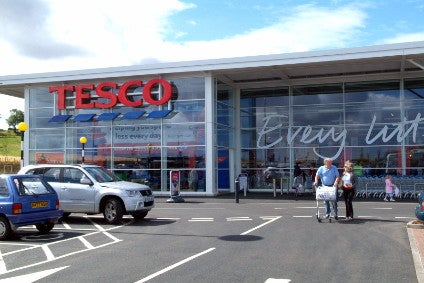The relationship between packaged food manufacturers and brand-owners and the larger retailers can be a fraught one as companies vie with their rivals for space on the supermarket shelves.
But until now those food businesses probably wouldn’t have expected a decision on listings to be taken based on how their products are packaged.
However, this week, the UK’s largest supermarket chain, Tesco, threatened to de-list packaging-heavy products in an extension of its own efforts to remove excess packaging from its own brand lines.
Launching phase two of its Remove, Reduce, Reuse & Recycle plan to suppliers, including food businesses, the retail giant’s CEO Dave Lewis left his audience in no doubt that they would have to become more environmentally friendly or suffer the consequences.
He told suppliers that from next year, the size and suitability of packaging will be assessed as part of category reviews and ranging decisions.
Lewis said: “In the first quarter of 2018 we audited all packaging materials in our business and set ourselves a challenge to remove all hard-to-recycle material by 2019; we’re on track for Tesco own brand and we’re working with branded suppliers to deliver the same.

US Tariffs are shifting - will you react or anticipate?
Don’t let policy changes catch you off guard. Stay proactive with real-time data and expert analysis.
By GlobalData“Now we’re taking the next step and tackling excess packaging. From next year, we will assess packaging as part of our ranging decisions, and if it’s excessive or inappropriate, we reserve the right not to list it.”
Of course cynics might suggest that Tesco, which announced its packaging plans at four meetings with more than 1,500 suppliers, may be involved in something of a PR exercise.
Where there are two similar products from smaller producers it may well favour the one with the least packaging, but would it be prepared to take such a decision – against the backdrop of a tough retail environment – when the excessive packaging ‘villain’ is a Big Food company providing some of the retailer’s best selling products?
We shall see. But what is certain is that the direction of travel – led by environmentally-conscious consumers – is towards packaging products in material that doesn’t hurt the planet and cutting down on the amount of the stuff used.
Announcements from food companies themselves – either limiting or changing packaging materials or cutting down on the use of ingredients that are harmful to the environment – ape what Lewis is saying, and what Tesco is doing with its own brands.
If there are any food companies out there that aren’t in tune with the zeitgeist, they risk being left behind. Very few observers believe environmental concerns to be a fad and some of the largest retail players are starting to make sustainability a more important factor in their negotiations with suppliers.





